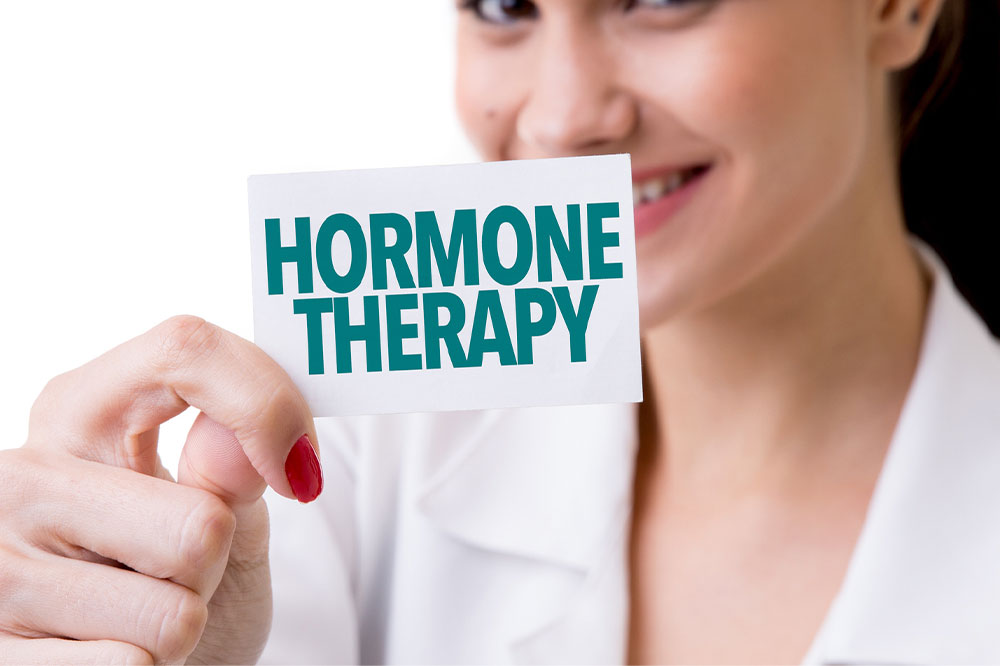
Things to know about hormone therapy
Hormone therapy or HRT is a healthcare treatment that involves the use of hormone-blocking agents or hormones to change the body’s natural hormonal balance. It helps treat conditions like menopause, cancer, and transgender hormone replacement therapy. There are two main types of hormone therapy. A licensed professional generally prescribes this treatment method. Let us understand the types, uses, and risks associated with hormone therapy.
Hormone therapy for women
Hormone therapy for women is a treatment that contains female hormones. You will take the therapy to replace the estrogen your body stops making during menopause. Typically, hormone therapy helps treat prevalent menopausal symptoms such as vaginal discomfort and hot flashes. The therapy helps prevent bone loss and lower fractures in postmenopausal women. However, there are some side effects associated with using hormone therapy. These depend on the therapy duration, dosage, type, and individual health risks. Hence, for best results, hormone therapy specialists customize the therapy for every person and re-evaluate them frequently to ensure the benefits outweigh the side effects or risks.
Types of hormone therapy for women
Predominantly, there are two main kinds of hormone therapy for women. These include:
- Estrogen therapy
The hormone therapy specialists usually prescribe a low estrogen dose to be taken as a patch or pill every day. They may prescribe estrogen as a vaginal ring, spray, cream, or gel. - Progestin or estrogen-progesterone therapy
This is a combination therapy that combines the progesterone and estrogen doses.
Hormone therapy for men
Over time, it is normal for men’s testosterone levels to decline. Hormone therapy for men does not replace something that drops naturally. Your body needs testosterone for reproductive function, male sexual development, bone density, healthy red blood cell levels, and building muscle bulk. The natural plunge in testosterone does not hamper their overall health. But some men with alarmingly low testosterone levels may benefit from the therapy. For instance, conditions like hypogonadism can result in unnaturally low testosterone levels. It is a testicle dysfunction that does not let the body produce adequate testosterone. But what’s uncertain is whether testosterone therapy benefits healthy men whose testosterone levels drop merely by aging, especially given its side effects.
Types of hormone therapy for men
The three main options include:
- Intramuscular testosterone injections
The hormone therapy specialist will inject these into your buttock muscles every two to three weeks. - Testosterone patches
You can apply these daily to your abdomen, buttocks, arm, or back. - Topical testosterone gel
These can be applied daily to the abdomen, arms, or shoulders.
Uses
Hormone therapy can help address various issues. The correct dosage and hormone combination depends on the reason for prescribing this treatment.
Overcoming menopause signs is one of the leading uses for HRT. Menopause is not an illness but a natural shift from when a female can reproduce to her next life stage. Women go through menopause sans any treatment. But if the transmission inflicts distracting symptoms, some treatment approaches can bring relief. Most people experience vaginal dryness, night sweats, hot flashes, urinary problems, osteoporosis, bone thinning, thinning hair, irregular periods, difficulties with memory and concentration, mood changes, and sleep problems. HRT can help manage these signs. Further, it may help prevent skin aging, reduce mortality amongst young postmenopausal women, improve muscle function, and lower the risk of heart attacks and heart failures.
Side effects
Hormone therapy blocks the impact of certain hormones, leading to certain side effects. Every person responds to the HRT differently, and not everyone experiences side effects, but those who get symptoms may experience one or more of the following:
- Osteoporosis or bone weakening
- Genito-urinary symptoms (cause vaginal dryness in women and erectile dysfunction in men)
- Loss of libido
- Hot flashes (when a person experiences mild to extreme heat across the body, accompanied by flushing, sweating, and a rapid heartbeat)
- Infertility
- Joint pain
- Fatigue
- Body changes
- Cognitive changes
- Difficulty focusing
Cost
It is a crucial inquiry, given that most insurance plans do not cover the treatment cost. The typical HRT cost will range between $30 and $90 monthly. But the general treatment cost will depend on various factors like the treatment employed and the degree of hormone needed in every dose.




